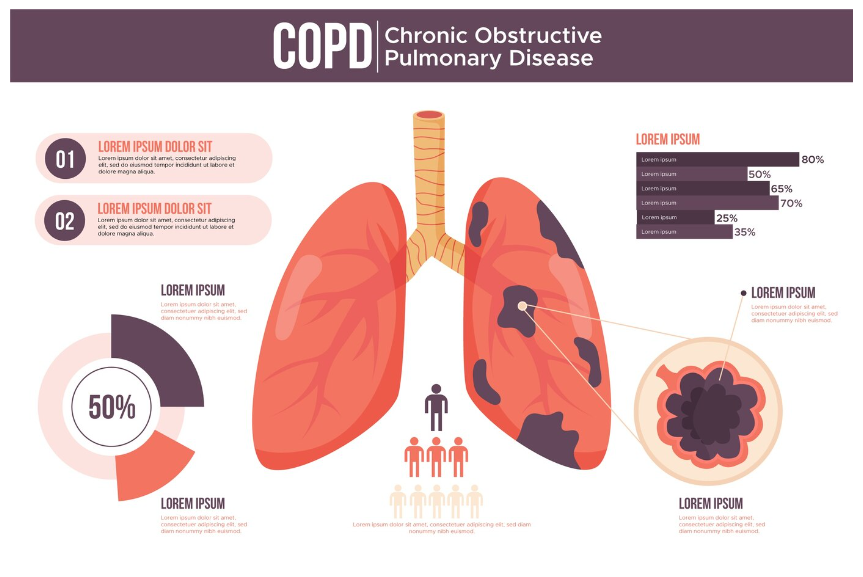
Causes and Risk Factors for Lung Disease
Introduction:
Lung diseases can affect anyone, regardless of age or lifestyle. While some factors are beyond our control, others are influenced by our habits and environment. Understanding the causes and risk factors for lung disease is essential for prevention and early intervention. Let’s explore some of the common culprits behind these conditions.
Causes and Risk Factors:
- Smoking: Smoking is the leading cause of lung disease. It damages the lungs’ airways and tissues, leading to conditions such as chronic bronchitis, emphysema, and lung cancer. Secondhand smoke exposure can also increase the risk of developing lung diseases.
- Air Pollution: Exposure to air pollution, both outdoor and indoor, can harm lung health. Pollutants such as particulate matter, ozone, and nitrogen dioxide can irritate the airways and lead to respiratory problems, including asthma and COPD.
- Occupational Hazards: Certain workplaces expose individuals to harmful substances that can damage the lungs over time. Examples include asbestos, silica dust, coal dust, and chemicals used in manufacturing and construction industries.
- Genetics: Some lung diseases, such as alpha-1 antitrypsin deficiency and cystic fibrosis, have a genetic component. Individuals with a family history of these conditions may be at a higher risk of developing them.
- Infections: Respiratory infections caused by viruses, bacteria, or fungi can damage the lungs and increase the risk of developing chronic lung diseases like pneumonia and bronchiectasis.
- Age and Gender: Advancing age and gender can also influence the risk of developing lung disease. Older adults are more susceptible to respiratory conditions due to age-related changes in lung function, while certain diseases like lung cancer may affect one gender more than the other.
Conclusion:
While some causes of lung disease may be unavoidable, others are within our control. By avoiding smoking, reducing exposure to air pollution, and taking precautions in high-risk workplaces, we can minimize the risk of developing these conditions. Additionally, early detection through regular check-ups and screenings can help identify lung diseases in their early stages when treatment is most effective.
To seek medical advice, always consult a Doctor. Here are our recommended experts. Click here
To read more on Respiratory disease . Click Here


